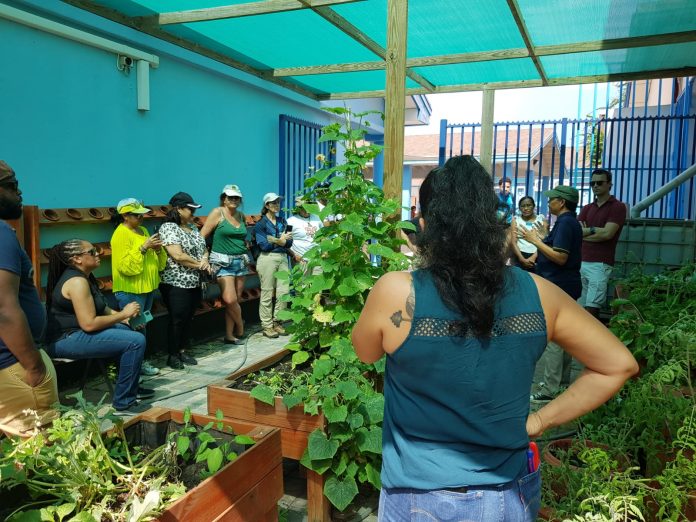From the 28th of November to the 2nd of December, the international workshop ‘Traditional Knowledge Solutions for Present and Future Climate Change Adaptation and Resilience in the Caribbean’ took place at the National Archeological Museum of Aruba (MANA). This workshop was a collaboration between the project ‘Islanders at the Helm’ and MANA.
For four days, participants from the Caribbean region, the Netherlands and Aruba exchanged experiences, knowledge and ideas regarding climate change in the Caribbean region and how to reduce its effects.
The opening of the workshop had special guests, including the Governor of Aruba, the minister of Education and members of the press. After the official opening, the information part followed, where local and international participants gave a presentation. To make these presentations accessible to a wider audience, these are available via treaming by following the link: https://www.youtube.com/@user-yr9ou6zh9n/streams.
The following days consisted of small group sessions focused on specific topics. Among others, the participants deliberated on agriculture, food safety, water management, cultural heritage, sacred spaces and memory places, house building and locations to live, and people as part of a Natural System to Adapt to Climate Change.
A public panel with representatives of indigenous communities in the Caribbean and Aruban farmers gave closure to the meetings at MANA. The panel focused among other things on the meaning of nature for communities, traditional practices to deal with climate change, the contribution of traditional knowledge in the planning of development, and the key message of indigenous communities for the world.
On the final day, a journey was taken through Aruba visiting archeological sites and innovative initiatives related to sustainability and the environment. Participants were impressed with the projects of Ecoliving Aruba, San Antonio College and Aruba National Park that promote sustainable agriculture and the rescue of Aruban plants.
The goal of the workshop was to exchange ideas with key persons and institutes in the Caribbean. In this format, local, indigenous and traditional guests also received a platform. It was the first time in the Caribbean that these diverse groups came together to deal with the challenges of climate change.
For this topic, other meetings will follow to continue developing ideas. The workshop showed the importance of the integration of results of scientific research with traditional knowledge.
During an educational session at the Hofi di Shoco at the Aruba National Park, actions were identified to continue working together. A vision document will be presented on how to deal with climate change. A digital platform was also created to facilitate dialogue between the participants. Next they will begin preparing for another meeting in Isla San Andres, Colombia.
It is necessary to promote more research and documentation – with a database – on the national and local level for the topics concerned and to strengthen the transmission of information to more groups in the community to create awareness. The organizers were satisfied with the workshop. They thank Islanders at the Helm, CaribTrails, KITLV, Leiden University, UNESCO-Caribbean, and the ministry of Culture and Finance of Aruba for making it possible. Human resources and equipment contribution was received from Fundacion Rancho, the National Library of Aruba and the University of Aruba (OGM Faculty).




















